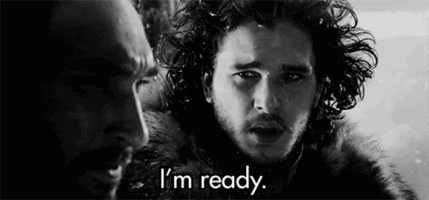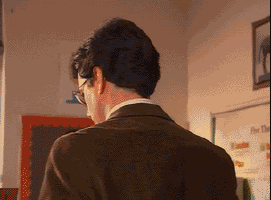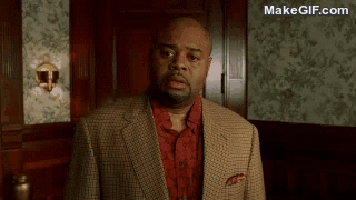Why I Left Academia; or, To Publish … and Therefore Perish
A few weeks back, I wrote a Historista post about adjusting to a life untethered (or mostly untethered) from academia. In response to that post, readers wondered,
- Why did you leave academia in the first place?
- How are you able to support yourself?
I’m going to answer question #2 in an upcoming post. But for the benefit of graduate students and adjuncts, and the faculty members who advise them, I offer what I hope will be a useful/cautionary tale in answer to question #1.
In the Beginning
In 2002, I graduated from the University of Iowa with a PhD in American Studies. I had gone on the job market the previous fall and had done quite well: a lot of AHA and MLA interviews (yes, I threw my hat into the ring for English department positions), and a few campus visits. I had one job offer early in the process that I decided to decline but had no subsequent offers. So I accepted a part-time lectureship (read: adjunct position) in the History and Literature program at Harvard.
Over the course of that year, I taught a few introductory courses and advised several talented and smart students on their junior research projects and senior theses. The relatively low teaching load also gave me time to revise the dissertation and submit it to the University of Georgia Press in time for the next job market round.
Go West, Young Couple!
Huzzah! In 2003, I snagged a tenure-track job in the Honors College at Texas Tech University.

It was a great position – strong students and excellent colleagues in an affordable (if somewhat isolated and very politically conservative) town. I was only able to take it, however, because my husband Dan put his own career at risk and negotiated with his law firm to work two weeks a month in Boston and two weeks in Lubbock.
Making job decisions is always hard but making them within a relationship can be incredibly difficult. You must figure out what will work best for your happiness and your partner’s, and for your collective financial situation. Dan and I ultimately decided we could and should make this move, and we landed in Lubbock in the fall of 2003.
The first few years of this back-and-forth were often exciting but mostly exhausting.

I published my dissertation as a book at the beginning of my second year at TTU and my prospects for tenure were excellent. Because he is a badass, Dan made partner at his law firm despite his time working away from Boston.
But by the end of our second year, however, it became apparent that this two-city life would be untenable long-term. My entire salary was funding our travel and housing, and Dan was not sure he could grow his practice from Lubbock.
So I began to look for jobs in cities where his law firm had offices. I had exactly one AHA interview and one campus visit – and one job offer from the History department at California State University, Fullerton. We moved from Lubbock to Pasadena, California in the fall of 2006.

I Love L.A.! Sort of.
At first it was fantastic. The weather! The restaurants! The celebrity sightings! Again I had great colleagues, and students who brought a wider diversity of experiences to the classroom.
The downside was that I had a heavier teaching load, and more students. Dan was getting up at 4:30 in the morning to talk with his east coast and European clients, and not coming home until the end of the business day on the west coast.
After a year of 14-hour workdays, we were deeply unhappy. I had managed to secure an advance contract for my next book project and so tenure seemed likely. But I was not finding much time to do research or write — a common experience at teaching-heavy institutions like Cal States. And Dan’s career was suffering; he really needed to move back to the East Coast.
Our decision to leave L.A. came only after months of agonizing discussions about the effects this would have on my career, and our marriage. But it was also a galvanizing moment. It was late November 2007, near the end of the fall semester, and I had missed the due dates for long-term fellowships. But there were several other short-term fellowship competitions – all based in New England – that did not close until January. I quickly wrote up some research descriptions, asked for rec letters, and applied.
Ultimately, I was able to cobble together five short-term fellowships, enough to provide seven full months of research support; I then secured an (unpaid) research leave from Fullerton. My plan was to spend that year researching and writing my book, and applying for jobs in New England. Because I had been successful in two previous job searches, I was optimistic about my chances.

Taking the Leap
But this was the fall of 2008, and as the economy tanked all of the academic jobs disappeared. Now I had to make The Really Big Decision: stay in Boston with Dan, or return to California and my tenure-track job by myself.
Again, for those academics with partners, this is the kind of decision you hope you will never have to make. And yet you almost always have to, sometimes more than once.

I took the leap. I had faith that the job market would improve and that in the meantime, I would be able to find part-time teaching work and publish enough to secure myself another job. Yes, yes, I know. I was naive and over-confident — a terrible combination.
In any case, I quit my tenure-track job and spent the next several years writing what would become Ruin Nation, and adjuncting (again!) in the History and Literature program at Harvard. I went on the job market every year but it was increasingly difficult to explain and justify my career decisions. It was awkward to bring up such issues in a job letter and to search committees, I’m sure it looked like I had left both Texas Tech and Cal State Fullerton after negative third-year reviews.
Ruin Nation came out with the University of Georgia Press in 2012 and it did well enough that I was subsequently asked to give lectures and join boards and program committees. I felt like the next job market year would be The One. It wasn’t. Neither was the one after that, nor the one after that.
My mentors were befuddled. My colleagues couldn’t understand it. I can’t remember what day it was exactly, but finally, I had the revelation.
The Revelation
I was an adjunct with two books. In the rigid world of academic hiring, I didn’t make sense to any search committee out there. I was too experienced for assistant professorships, and there was no way any dean would approve hiring an adjunct with tenure. I had published too much, and I had made myself unhireable.

The Lessons
Every good tragic tale has its lessons.
- The first lesson is that the academic hiring system is profoundly messed up. Only in academia are the least qualified people the most popular and successful job candidates. Think of all those AHA and campus interviews I had my first year out! And my final year on the market, with twelve years of experience? None. For those of you still toiling as adjuncts or postdocs four or five years after you earned your Ph.D., it’s time to consider your options.
- Second, every decision you make in the job market has benefits and costs — especially regarding your private life. You need not be partnered up to know this. I’ve found that the best way to deal with this is to acknowledge it, and to be clear-eyed (and full-hearted) about both the upsides and the downsides.
- Third, do not leave a tenure-track position if you have designs on a future as ladder faculty. Because once you jump off the track, you can almost never jump back on.
- And fourth, if you are a graduate student or an adjunct, Do Not Publish Too Much. One article, maybe two. If you’ve already written a book, keep the manuscript in your desk drawer until you have a tenure-track job. Then pull it out, polish it, and send it to presses.
But there are other, more positive lessons too.

Considering a job change forced me out of my research lethargy and pushed me to apply for fellowships, without which I never would have written Ruin Nation. Through that book, I found a new community of Civil War history colleagues who have become close friends.
And without Ruin Nation, I doubt I would be doing the kind of writing for larger publics that I’m doing now.
In the end, my decision to choose family over a tenure-track job has made me very happy in my personal life. It has also turned me toward another career – full-time writing – that may bring me even more joy than academia ever did. How am I able to do this? I’ll answer that question in the next post.
